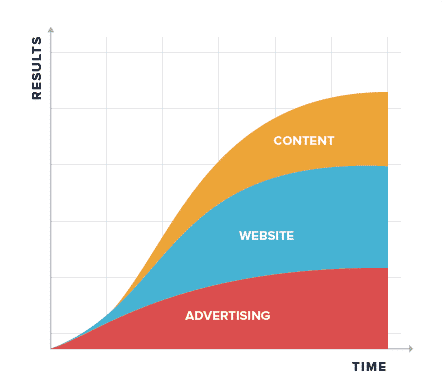Marketing Budget Calculator
One of the most common questions our team of web marketing experts gets asked is “How much should I spend on marketing?”
Unfortunately, there’s no one-size-fits-all answer to this question.
Your marketing budget will depend on a number of factors, including the size of your business, your industry, your marketing goals and more.
That’s why we created this marketing budget calculator. Just enter a few details about your business.
Why You Need a Marketing Budget
Before we dive into the marketing budget calculator, let’s briefly talk about why you need a marketing budget in the first place.
A marketing budget is important for several reasons:
- It forces you to think about your marketing goals and objectives.
- It ensures that you have the resources necessary to reach your target audience.
- It allows you to track your marketing progress and ROI.
- It helps you make informed decisions about where to allocate your marketing resources.
- How to Use the Marketing Budget Calculator
Now that you know why you need a marketing budget, let’s talk about how marketing budget benchmarks and why they help you have realistic expectations – remember that your competitors are investing in marketing too and could very well be outspending you!
Percentage of Revenue Spent on Marketing Benchmark
Here are benchmarks for percentage of total revenue companies spend on marketing based on their aggressiveness for growth:
| Percent of Gross Revenue | SBA Average Guide |
|---|---|
| 2% | Low |
| 4% | Medium / Low |
| 6% | Medium |
| 8% | Medium |
| 10% | Medium / High |
| 12% | High |
| 14% | Growth / Aggressive |
| 16%+ | Startup / Aggressive |
How to Calculate Your Marketing Budget
Calculating your marketing requires that you have a good understanding of your business key financial data in addition to you overall growth and marketing goals.
Here are numbers that we recommend knowing to determine your marketing budget:
- Annual revenue
- Annual revenue growth goal
- Number of current and needed customers to hit growth goal
- Customer churn (the number of customers that you lose on monthly or annual basis)
- Percentage of Total
- Marketing spend over Revenue
Annual profitability goal
Additional metrics that should help you guide how much you can afford to invest are your current customer annual value, average client tenure, and customer acquisition cost. This will give you a sense of how much a customer is worth as well as how long it may take you to recover your initial invest.
Align Your Marketing Goals & Budget
Setting marketing goals will depend on the above metrics. After all, you are trying to calculate how much it will cost to reach your goals.
For example, if you know that you need an additional 24 customers and it costs you $2,500 to acquire a customer that pays you $15,000 per year, you need to plan to spend $60,000 over the next year to acquire those additional customers.
You also know that if you hit these goals, you’ll add $360,000 in revenue to the company off just $60k in spend. When looked at it that way, as an investment into company growth, that $60,000 (or $5,000 per month) isn’t such a big expense.
What the example above illustrates is that you really need to know your company’s numbers. Without understanding the value of a customer to your business, you may either end up overspending or cutting yourself short and not reaching your growth goals.
Invest in Multiple Marketing Channels
The biggest mistake a business can make is to invest all its budget into one marketing channel.
There are no easy buttons to generate leads. So you shouldn’t expect all your leads to come from just one channel.
It’s important to have a marketing mix of different channels so you can reach your target audience in different ways.
Your marketing budget should be split among the channels that will work best for your business and that will help you reach your marketing goals. A good rule of thumb is to spend 50% of your marketing budget on tried-and-true marketing channels, and 50% on new marketing channels or experiments.
Some of the most popular marketing channels include:
- Search Engine Optimization (SEO)
- Pay-Per-Click Advertising (PPC)
- Content marketing
- Video marketing
- Email marketing
Finally, consider that the performance of marketing channels can vary based on the season or even over time. As a marketing channel becomes popular, it’s also likely to become more competitive overtime.

So, you’ll need to continually adjust your marketing mix and budget to ensure that you’re allocating your resources to the channels that are performing the best.
Use a Marketing Budget Calculator
Now that we’ve gone over how to calculate and set your marketing budget, it’s time to put those numbers into a marketing budget calculator.
Need Help?
If you’re the owner of a small or growing business and want to find out the right marketing marketing channel, check our Google Audit service.
If you work for a web or marketing agency looking to scale your business more cost-effectively, learn more about our White Label programs.
Want to explore more calculators? Check out our Website Cost Calculator
Marketing Budget Calculator Tool
©2023 Pronto Marketing All Rights Reserved.